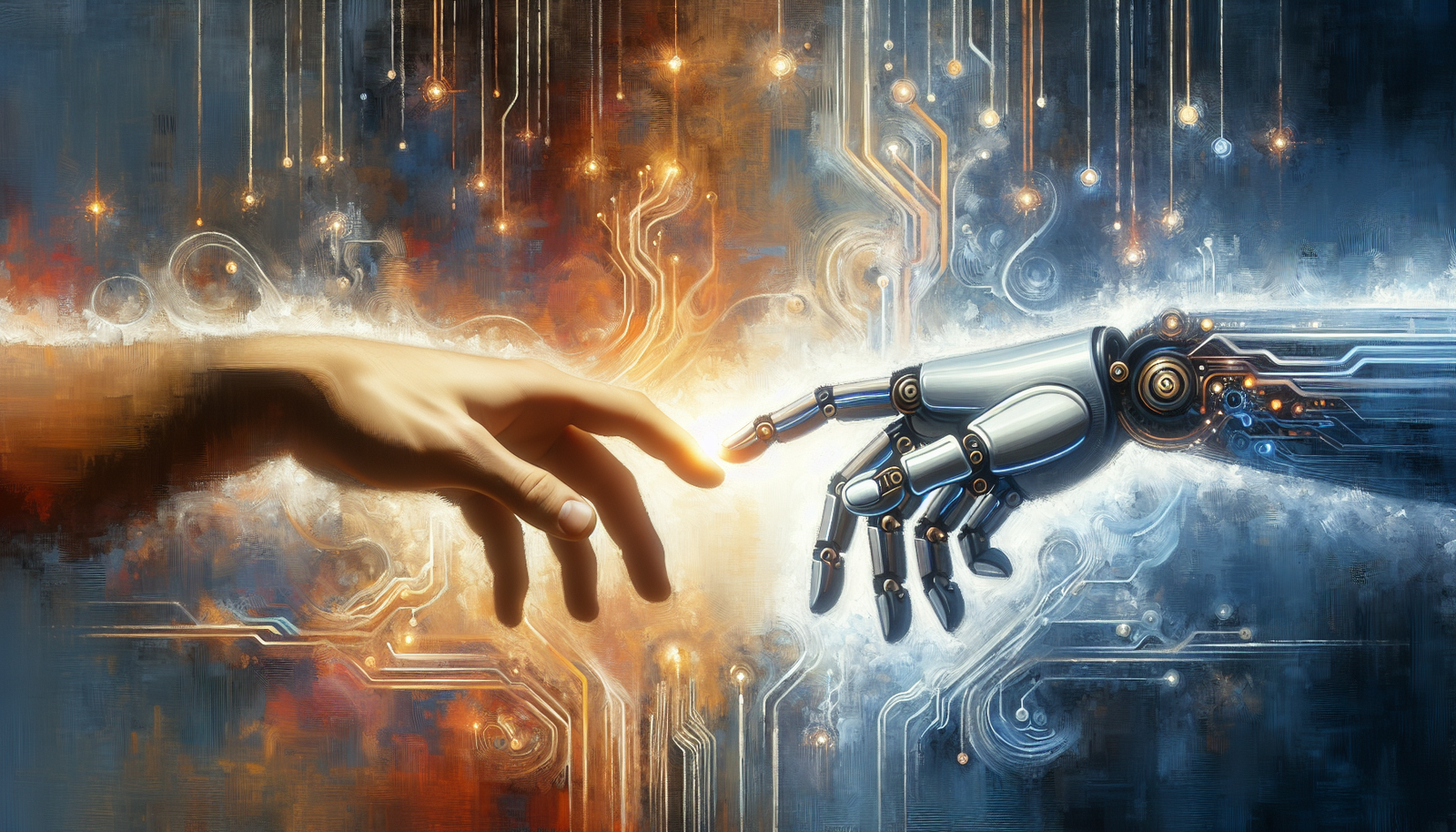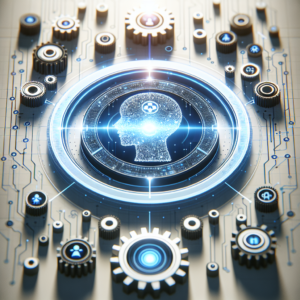What do you think about the impact of artificial intelligence on our daily lives? It’s fascinating to see how AI is increasingly woven into the fabric of our society. As technology advances, it provokes a wide array of ethical considerations that I’m eager to unpack with you.
Understanding Artificial Intelligence
Artificial Intelligence, or AI, refers to the simulation of human intelligence by computer systems. This includes various capabilities like learning, reasoning, problem-solving, perception, and language understanding. As I navigate through this complex landscape, I realize that the applications of AI are virtually limitless, encompassing everything from self-driving cars to virtual assistants and even medical diagnostics.
The Growing Influence of AI
With AI becoming more prevalent in our personal and professional lives, I can’t help but notice how it changes the way we connect, communicate, and even think. When we consider the scope of AI, I think about its potential benefits and the ethical challenges that arise simultaneously.
Ethical Concerns Around AI
As I dive deeper into the world of AI, I start to encounter various ethical dilemmas. These dilemmas make me ponder how my decisions today can significantly impact future generations. Let’s examine some key ethical considerations:
Privacy and Data Security
One of the most pressing issues I come across is the concern related to privacy and data security. As AI systems collect and analyze vast amounts of data, I often wonder about how this affects individual privacy. I realize that protecting personal information is paramount, yet many AI applications require extensive data access. This creates a tension between innovation and privacy concerns.
Bias and Fairness in AI
Another critical point I find myself reflecting on is bias and fairness in AI systems. Algorithms are designed by humans, and thus, may inadvertently reflect our biases. I think about the consequences of biased AI decisions, particularly in critical areas like hiring, law enforcement, and lending. It sparks a conversation about accountability—who is responsible when an AI system discriminates against certain groups?
Table 1: Examples of AI Bias
| Area | Description | Consequence |
|---|---|---|
| Hiring | AI tools favoring candidates from certain demographics | Lack of diversity in workplaces |
| Law Enforcement | Predictive policing algorithms profile racial minorities | Reinforcement of systemic racism |
| Lending | Credit scoring models that disadvantage low-income individuals | Widening the gap in economic opportunities |
Accountability and Transparency
In my journey of understanding AI, I stumble upon the issue of accountability and transparency. As systems become more complex, it becomes challenging to understand how they make decisions. I wonder how we can hold AI systems accountable, especially when it comes to life-altering decisions. Transparency should be a priority in AI development to foster trust and ensure ethical practices.
The Unemployment Dilemma
The rise of AI also brings up the topic of employment. Automation threatens to displace workers in various sectors, raising questions about the future of jobs. I often think about how essential it is to prepare our workforce for this shift, ensuring that individuals have the skills required for the AI-driven job landscape.
Table 2: Job Sectors Affected by AI
| Job Sector | Impact |
|---|---|
| Manufacturing | Automation leading to reduced labor needs |
| Retail | Self-checkout systems reducing cashier jobs |
| Transportation | Autonomous vehicles threatening driving jobs |
| Services | AI chatbots replacing customer service roles |
The Role of Policy in AI Ethics
As I explore these ethical considerations further, I realize that solid policies must guide AI development. Governments, tech companies, and civil society must collaborate to establish ethical AI frameworks.
Regulations and Governance
I recognize that the absence of standardized regulations can lead to significant ramifications. Policymakers need to prioritize the creation of guidelines that regulate AI usage, ensuring ethical principles are adhered to. Clear governance structures would not only protect individuals but also benefit industries.
Engaging Stakeholders
In contemplating AI’s future, I find it essential to involve various stakeholders in discussions about its ethical implications. Tech experts, ethicists, regular citizens, and lawmakers must come together to ensure that AI serves the greater good. I believe inclusive dialogue can foster a culture of accountability.
The Importance of Ethical AI Development
As I delve into the concept of ethical AI development, it becomes clear to me that embedding ethics into the design process is crucial. Responsible development practices can mitigate risks associated with AI, paving the way for a more equitable society.
Design for Accountability
I’ve learned that developers need to incorporate features that promote accountability into AI systems. This can include implementing traceable algorithms, documentation of decisions made by AI, and providing avenues for appeals and corrections.
Fostering Inclusivity
Moreover, I strongly believe that ethics must be ingrained from the beginning of AI projects, ensuring that diverse perspectives contribute to system design. This would help in minimizing biases and making AI technologies more inclusive.
Balancing Innovation with Ethics
As I reflect on the pace of innovation, I run into a crucial challenge: how do I strike a balance between leveraging AI’s potential and addressing ethical concerns?
Innovation at All Costs?
The rush to innovate often overshadows ethical considerations. I feel there should be a conscious effort to slow down and reflect on the societal impact rather than adopting a “move fast and break things” mentality. It’s about ensuring that new technologies uplift and benefit all segments of society without leaving anyone behind.
Establishing Ethical Standards
I find it essential that we create and uphold ethical standards in AI research and development. Forming coalitions among companies and research institutions to promote responsible AI practices can lead to a more ethical tech landscape.
International Perspectives on AI Ethics
When thinking about the ethical implications of AI, I can’t ignore the international landscape. Different cultures and countries have varying perspectives on ethics in technology, which adds another layer of complexity to the dialogue.
Global Cooperation
As I ponder the global nature of AI, I recognize that cooperation across borders is vital. International guidelines could help nations align their policies while respecting cultural differences. Countries should engage in cooperative frameworks for sharing best practices and ethical considerations.
Learning from Different Approaches
As I look around the world, I see that countries like the European Union are taking significant steps towards regulating AI. Their approaches can provide valuable insights into establishing AI ethics that respect human rights and dignity.
Looking Towards the Future
As I contemplate the future of AI and its ethical implications, I feel a mix of excitement and concern. The road ahead will not be easy, but I am optimistic about our potential to shape AI responsibly.
Building a Collaborative Future
I think it’s essential to keep the conversation going among technologists, ethicists, policymakers, and the general public. Continuous dialogue and education are the keys to ensuring AI evolves in a manner that benefits society.
Embracing Ethical AI
In conclusion, I believe that embracing ethical AI is not merely an option but a necessity. Staying informed, advocating for transparency, fairness, and accountability in AI systems will empower us to harness the power of this technology for the common good.
Personal Responsibility
On a personal level, I understand that my decisions and actions matter. Whether I’m part of a tech company or a regular user of AI technologies, I can voice my concerns and participate in discussions about ethical AI. Together, we can usher in an age of AI that respects ethical considerations and champions human dignity.
In this unfolding chapter of technology, I remain hopeful. By approaching AI thoughtfully and ethically, I believe we can navigate the challenges while unlocking its incredible potential. What about you? How do you view your role in shaping the future of AI?






